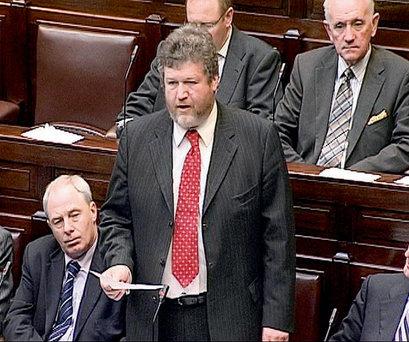Fine Gael to replace HSE with Dutch model

The Fine Gael plan to dismantle the Health Service Executive (HSE) has been defended by Fine Gael health spokesman James Reilly, Leo Varadkar and Richard Bruton. By Christina Finn
The controversial plan will result in almost 30,000 redundancies and has been criticised by trade union SIPTU.
Fine Gael insists that a health system based on the Dutch model would work in Ireland. The HSE would be replaced with a universal health insurance system and would "prioritise the protection of frontline services and put the patient first," said Mr Reilly.
Fianna Fáil Ministers said it would result in a wholly private health system that would be primarily motivated by profit.
The Dutch system has been in operation since 2006 and requires people who are living in the Netherlands or paying income-tax in the Netherlands to purchase health insurance from a private insurance company. Medical insurance is obligatory.
In addition to the nominal premium, every person obliged to take out insurance has to pay an income-related contribution. The income-related contribution is a percentage of income.
The contribution for 2009 is calculated on income up to € 32,369. Dutch people pay 6.9%, up to a maximum of € 2,233 per annum. This contribution is reimbursed by their employer or benefits office.
If the employer does not pay the contribution, if you are paying yourself or you are unemployed, you will pay 4.8% for 2009, up to a maximum of € 1,553 per annum.
Prior to 2006 the system was a two tiered system, public and private, similar to what exists in Ireland today. Since the new health care introduction everybody in the Netherlands is required to purchase basic health insurance.
Mr Varadkar said that putting private money into the system simply meant that everybody would become a private patient. He said that the Dutch model was ranked as the best in the world by the OECD.
The roll out of the new health care system would take up to four years to fully implement.
The Irish Medical Organisation (IMO) states in the Universal Health Cover report that the Dutch model is increasingly coming to the forefront of debate as a viable alternative that could build on Ireland's existing private health insurance market.
However the IMO said it is important to note that the Dutch system is a "work in progress". "Concerns have been raised already about equity and affordability for lower income groups."
